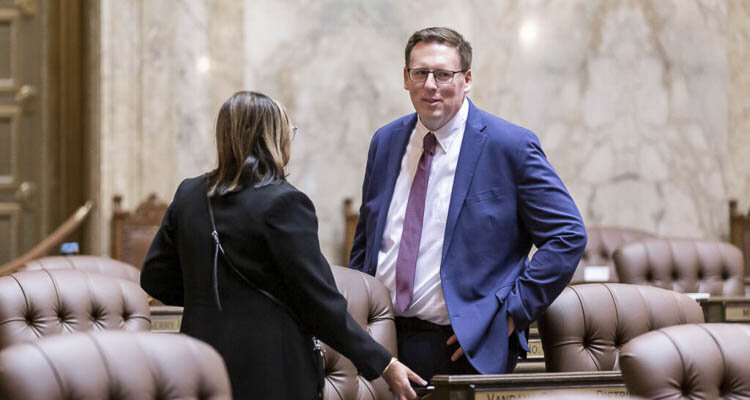
House Bill 2260 authorizes the Liquor and Cannabis Board (LCB) to impose civil penalties on store clerks for selling alcohol to minors
A bill from Rep. Kevin Waters that will align the penalties for selling alcohol to a minor in Washington, is set to become law later this year after the governor signed the bill on Wednesday.
House Bill 2260 authorizes the Liquor and Cannabis Board (LCB) to impose civil penalties on store clerks for selling alcohol to minors.
Under current law, the penalties associated with selling to a minor vary depending upon the seller’s occupation or location. Servers and bartenders have administrative penalty options that are a component of the mandatory alcohol server training.
However, there is no administrative penalty option for store clerks. Instead, they receive a citation for a gross misdemeanor. Additionally, the likelihood that these charges are filed varies by county, leaving some with no penalty at all, and others with a criminal record that may hamper their ability to find another job.
“This bill is about bringing consistency and fairness for store clerks and bartenders or servers,” said Waters, R-Stevenson. “Making sure alcohol is not sold to minors is one of the top priorities for stores and this bill will create parity for stores and restaurants and correct the penalty structure.”
Under the new law, the option for a criminal penalty will remain in effect for cases of intentional or repeat sales to minors. However, adding the option for administrative penalties will harmonize the penalties for store clerks with restaurant servers, and for store clerks found to have sold tobacco products to minors.
“One of the greatest contributors to alcohol consumption by minors is adults securing alcohol for them. Because the law only provides for criminal enforcement for sales to minors that occur in stores, there is a lot of enforcement that is not occurring because law enforcement does not have the capacity to deal with these violations,” said Waters.
“Even with the potential of a misdemeanor, some prosecutors will not work on these cases. This bill will decriminalize unintentional sales to minors for store clerks by implementing the same fine that exists for restaurant employees. Administrative penalties are a way to bring consistency and remove criminal penalties for someone that makes a mistake.”
The bill is scheduled to become law in June of this year, 90 days after the 2024 session adjourned on March 7.
Information provided by Washington State House Republicans,
houserepublicans.wa.gov
Also read:
- House Democrats advance $18B in tax hike proposals as session winds downHouse Democrats in Washington advanced several tax hike proposals as the legislative session nears its end, aiming to address a major budget shortfall.
- Republican budget leaders see showdown ahead as Senate Democrats approve trio of major tax increasesSenate Democrats in Washington have approved major tax increases, prompting Republican budget leaders to warn of a growing showdown ahead.
- Representatives from the 18th and 20th Legislative Districts to hold joint town hall on May 3Lawmakers from the 18th and 20th Legislative Districts will host a joint town hall on May 3 at Battle Ground City Hall to review the legislative session and hear from residents.
- Expect delays on northbound I-5 near Ridgefield through May 9Northbound I-5 travelers near Ridgefield should expect delays through May 9 as crews work on improvements at the Exit 14 off-ramp to support future development.
- Brandon Erickson announces candidacy for Clark County Charter Review CommissionBrandon Erickson has announced his candidacy for the Clark County Charter Review Commission, seeking Position 1 in District 2.
- Clark County Sheriff’s Office investigating a reported burglary that led to apparent suicideThe Clark County Sheriff’s Office is investigating a reported burglary in Vancouver that ended with the apparent suicide of Charles Gardiner, interim chief of the Cowlitz Tribal Public Safety Department.
- POLL: Why did voters reject all three tax proposals in the April 22 special election?Clark County voters rejected all three tax measures on the April 22 special election ballot, prompting questions about trust, affordability, and communication.











